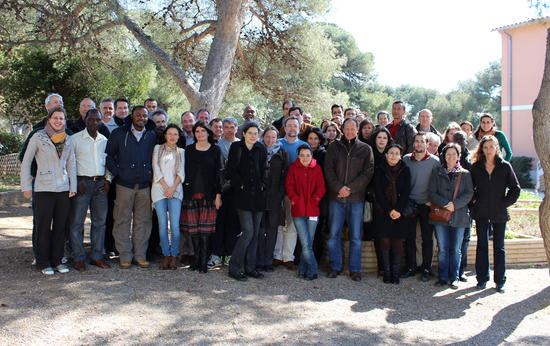EcoHort
Last update: 21 September 2012
This researcher school was the culmination and final deliverable of the EcoHort 2011-2012 programme backed by Agreenium. It was attended by 52 researchers from INRA and CIRAD, and from two Southern institutions, teacher-researchers from Montpellier SupAgro and Agro Campus Ouest, along with PhD and BSc students following a Hortimet Masters and Engineering training specializing in fruits, vegetables, food and markets (FLAM).
Specific objectives of the researcher schools
- Gain a command of the concepts, methods and tools used to characterize horticultural systems from agricultural and socio-economic viewpoints.
- Implement methods for designing new technical systems.
- Identify obstacles (basic knowledge, transmission of knowledge, etc.) to the evolution of horticultural systems.
- Convert the knowledge and identification of obstacles into projects for concrete action in the field on different systems and in different contexts (e.g. rural or peri-urban environments).
- Share concepts, methods and tools within one’s own work network with the different levels of stakeholders, researchers, experimenters, agricultural advisors, farmers.
The scientific programme was organized in three stages
The first stage presented some concrete cases of constructing novel horticultural systems comparing crops (fruit trees, market gardening) and environments (temperate, tropical) and illustrated the need to integrate different disciplinary fields and different stakeholder typologies at the same time. Three teaching sessions were then developed around the axes of knowledge usually forming the basis of horticultural systems: design, biological and ecological, and socio-economic bases. The third stage brought together the teachers and participants in workshops designed to identify the conditions required and obstacles for implementing novel systems. Three types of crops were worked on: fruit trees, market gardening and a combination of the two.
Lastly, a round table was attended by agronomists, socio-economists and anthropologists to take stock of both theoretical and practical tools that make it possible to reconcile multiple agronomic, ecological, economic and sociological requirements in the search for innovations.
All the lectures were made available to the public in April 2013 on the website of the EcoHort programme
Last update: 21 September 2012
